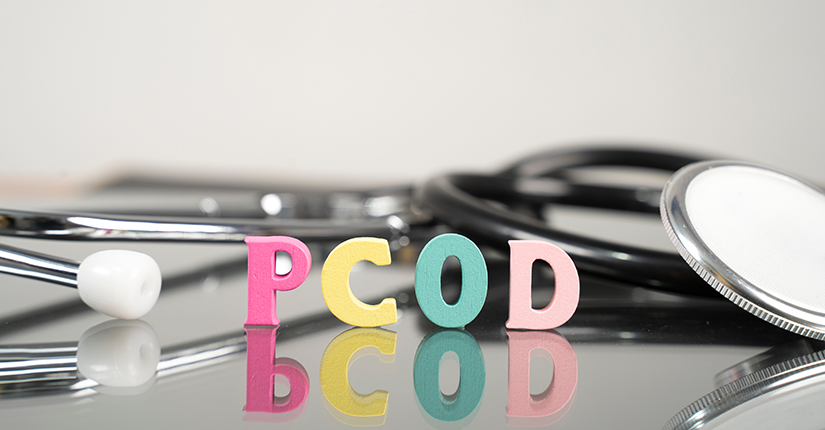5 Most Common Myths About PCOS And PCOD You Must Know: The imbalance of reproductive hormones is frequently associated with the hormonal condition polycystic ovarian disease (PCOD). Ovarian issues might result from this; often, women between the ages of 15 and 45 who are childbearing become impacted. The ovaries are the reproductive organs that generate progesterone and oestrogen, which control the menstrual cycle.
Menstrual cycle irregularities, hirsutism, acne, excessive weight gain or trouble decreasing weight, skin darkening, infertility, and pelvic discomfort are among the symptoms of PCOD.

Although PCOD is quite common, there are many myths regarding the disease and the need for a correct diagnosis. Unfortunately, no one ever told you the fact, which is sad. Do not worry; we will expose them all in this article today.
Myth #1
Irregular Periods Cause of PCOD
Although there could be several reasons for irregular periods, PCOD is one cause. Menstrual cycles usually last between 21 and 35 days. f your cycle lasts fewer than 22 days or more than 34 days, many causes may exist. Breastfeeding, excessive dieting or overtraining, pelvic inflammatory disease, uterine fibroids, and thyroid conditions are all potential reasons for an irregular cycle. In this situation, you should seek medical advice. Your doctor may identify the reasons and most likely causes through an examination and another testing, if necessary.
Fact- Menstrual irregularities in PCOD might include absent menstrual cycles, reduced menstrual flow, delayed menarche, or heavy and irregular periods.
Also Check: Irregular Periods – Reasons Many Females Have Late Period Problem
Myth #2
If You Have PCOD, Pregnancy is Impossible
Due to this reason, most women have gone through phases of extreme fear. However, some women could find it difficult or take longer to get pregnant, especially if their periods are irregular and their ovulation is inconsistent. Ovulation stimulation, which may be performed with several medicines, is the main issue for women with PCOD. But, just because you have PCOD doesn’t mean you can’t become pregnant or give birth to a child.
Fact- With a healthy lifestyle like regular exercise, a balanced diet, and quitting alcohol & smoking, and careful ovulation monitoring, your chances of becoming pregnant may increase.
Myth #3
PCOD Prevents You to Lose Weight
Due to their insulin resistance, people with PCOD tend to gain weight. Being overweight is more common among PCOD-affected women than among healthy women. Weight management strategies, such as diet and lifestyle modification programmes, have found that women lose the same amount of weight with and without PCOD, even though many women with PCOD have difficulties losing weight and are more prone to weight gain.
Fact- If you follow a healthy eating plan and exercise regularly, you can naturally lose weight.
Myth #4
Your PCOD Will Be Cured by Losing Weight
Having PCOD might make losing weight more difficult because of your slow metabolism and other problems. Because PCOD and weight are strongly related, some people with overweight and have trouble reducing weight, but this is not always the case.
Facts- Even though there is no known treatment for PCOD, losing weight can help to balance hormone levels in overweight and obese women. If not, only symptoms are managed with therapy.
Myth #5
Birth Control Causes PCOD
There are numerous misconceptions regarding how birth control affects your body and how it causes PCOD. Birth control is recommended for managing irregular menstrual cycles brought on by PCOD. Doctors generally prescribe birth control to treat PCOD-related irregular menstrual periods. However, that is only a treatment option if the patient’s primary goal is to eliminate their symptoms and avoid getting pregnant.
Facts- Using or stopping oral birth control does not cause PCOD. According to the doctor, several uncontrollable circumstances might be the causes of PCOD. Genetics is also to be involved, research has also revealed that women who have a mother or sister who has PCOD may be more likely to get the disease themselves.
When you understand PCOD better, you won’t need to be afraid of it. By debunking common misconceptions about PCOD, those who suffer from the condition can believe in their bodies’ capacity to manage their symptoms and feel better.













